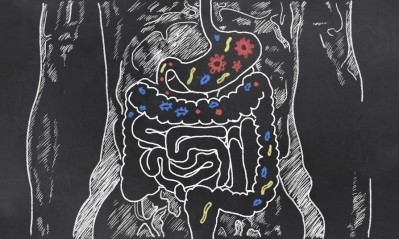Looking ahead to the IPA World Congress + Probiota Americas 2017
The gut-brain axis: An exploding field with popular appeal

The Gut-Brain Axis will be the focus of a special workshop at the upcoming IPA World Congress + Probiota Americas in San Francisco, June 7-9. The workshop will open with a presentation from Dr Paul Forsythe, assistant professor and principal investigator at McMaster University’s Brain-Body Institute.
While there is a growing body of data from animal studies, there are not a lot of human clinical trials out there to date. “The lack of human data is a big issue,” Dr Forsythe told us.
“There’s been a lot of speculation around mechanisms but very few have been nailed down,” he added. “I think the problem is that the speculation gets repeated and repeated and starts to look like fact. We really don’t know as much as we think we do with respect to mechanisms of action.”
Building the data
The animal data is compelling, however. “There’s evidence to show that probiotics can modulate the gut-brain axis and we recently published a study showing that a single strain can exert benefits in an animal model of PTSD,” said Dr Forsythe.
The study, published in BMC Medicine (Bharwani et al., 2017, 15:7), found that Lactobacillus rhamnosus JB-1 may protect lab animals against certain stress-induced behaviors and changes to their immune system.
Interestingly, the probiotic did not produce significant modifications to the composition of the gut microbiota.
Another study that Dr Forsythe was involved in looked at the impacts of low-dose antibiotic (penicillin) administration in early life and how these changed the composition of the microbiota in the gut, led to a long-lasting change in brain cytokines, and affected behavior.
On the flip side, when the lab animals used in this study were also given L. rhamnosus JB-1 concurrently with the antibiotic, some of these changes were prevented. The impact of the probiotic on the dysiosis in the gut were modest, they reported.
“While all these data obtained in rodents cannot be directly extrapolated to humans, they add support to the necessity to carefully consider the potential negative long-term effects of early-life [antibiotic] exposure,” wrote the study authors Nature Communications (LeClercq et al., 2017, doi: 10.1038/ncomms15062).
“The lasting dysbiosis and the persistence of cytokine change in the frontal cortex associated with aggression and reduced social interactions and anxiety raise questions regarding the important role of this brain area in the development of autism and other neuropsychiatric disorders.
“The partial preventive effects of a Lactobacillus given concurrently with the [antibiotic] early in life are intriguing and warrant further investigation of their potential to attenuate some of these possibly noxious long-term effects.”
This work was covered by The Economist.
Dr Forsythe notes that these studies show that, despite the complexity of the gut microbiota, exposure to a single microbial strain may protect against certain stress-induced behaviors and systemic immune alterations.
Profiling the microbiota
Some experts have noted that they can tell with 90% accuracy if a person is obese or lean depending on their microbiota, but does the same apply to brain health? Is there a clear microbiota profile for mood disorders, for example?
“There’s no way to look (yet) at someone’s microbiome and predict if they have a specific mood disorder,” said Dr Forsythe. “The lack of shift in the microbiota when it comes to probiotic administration suggests that the potential brain health benefits of probiotics are independent of the microbiome.”
IPA World Congress and Probiota Americas 2017
Dr Forsythe will be joined by experts from the University of California, Irvine, Baylor College of Medicine, and the University of California, San Francisco at the Gut-Brain Axis Workshop during the IPA World Congress + Probiota Americas 2017.
For more information and to register for this event, please click HERE.


















